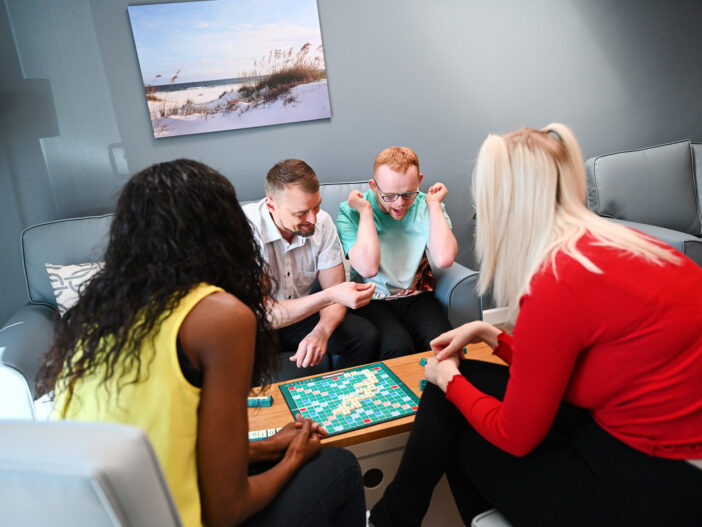An insight into Prader-Willi syndrome
At Voyage Care we have over 13 services across the UK that specialise in supporting people with Prader-Willi syndrome. As a condition that only affects around 2,000 people in the UK, many people have never heard of the disorder. Read our blog to learn more about Prader-Willi syndrome and what life is like for people in the Prader-Willi community.
What is Prader-Willi syndrome?
Prader-Willi syndrome (PWS) is a rare genetic disorder that causes a variety of physical symptoms, learning difficulties and behavioural challenges. It is the result of an abnormality of the 15th chromosome.
Prader-Willi syndrome causes disruption to a part of the brain that controls hormone release and regulates growth, sexual development and appetite.
An increased appetite is one of the main characteristics of Prader-Willi syndrome meaning that people who have the disorder always crave food and never feel full.

What is it like to have Prader-Willi syndrome?
People with Prader-Willi syndrome can still live a happy and fulfilled life and can manage well in social situations. However, some individuals may present with an emotional disconnect and struggle to read the emotions of people around them. They might also find it hard to understand their own feelings. Prader-Willi syndrome can also interfere with verbal processing skills.
Imagine having a conversation with your eyes closed. It would be hard to understand how the person you are talking to is feeling, and you wouldn’t be able to see their facial expression or body language. It’s like receiving a text message that may upset you because the words don’t translate intent or feelings.
Most people with Prader-Willi syndrome can only process small amounts of information, therefore keywords are frequently missed, and meaning is lost.
What challenges do people with Prader-Willi syndrome face?
There are many other challenges that can arise for people with Prader-Willi syndrome too. These can include, but are not limited to:
- Increased change of developing mental health issues such as anxiety and depression
- Weak bones and osteoporosis through diminished sex hormone
- Difficulties with eyesight
- Lack of muscle tone
- Extremely high pain threshold
- Inability to regulate body temperature.
- Hypogonadism – a sex hormone deficiency
- Difficulties with pronouncing words
- Tooth decay
- Diabetes
Although living with Prader-Willi syndrome can present challenges, this doesn’t mean people with the condition can’t life happy, healthy, and fulfilling lives.
How we support people with Prader-Willi syndrome?
At Voyage Care we support people living with Prader-Willi syndrome at our specialist services across the UK. As part of our commitment to delivering quality care and support, we developed a Prader-Willi syndrome specialism, enabling the people we support to receive consistent care from teams that truly understand their condition. Our expertly trained teams help by:
- Understanding the individual’s needs, wants and goals.
- Implementing individual person-centred support plans.
- Providing a safe and positive environment to progress.
- Encouraging the person living with Prader-Willi syndrome to lead a healthy and enriched lifestyle.
Find out more
To learn more about how we can support you, a loved one, or a client with Prader-Willi syndrome to live their best lives, please visit our dedicated webpage.

 Information
Information 

